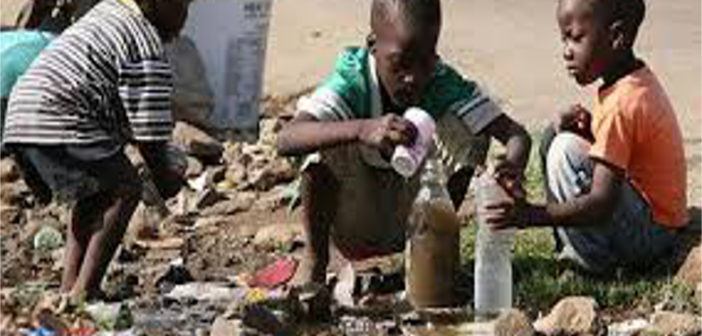The inequality gap in Nigeria so massive that the cumulation of the wealth of the country’s five richest people is enough to end extreme poverty in the country. According to Oxfam International on Wednesday, the aggregation of the wealth of the 5 richest people is $29.9 billion.
In the report titled ‘Nigeria: extreme inequality in numbers’, the organization gave the following breakdown on the extreme inequality in the country despite being the largest economy in Africa:
The combined wealth of Nigeria’s five richest men – $29.9 billion – could end extreme poverty at a national level yet 5 million face hunger. More than 112 million people are living in poverty in Nigeria, yet the country’s richest man would have to spend $1 million a day for 42 years to exhaust his fortune.
The amount of money that the richest Nigerian man can earn annually from his wealth is sufficient to lift 2 million people out of poverty for one year.
Women represent between 60 and 79 percent of Nigeria’s rural labor force but are five times less likely to own their own land than men. Women are also less likely to have had a decent education. Over three-quarters of the poorest women in Nigeria have never been to school and 94% of them are illiterate.
Between 1960 and 2005, about $20 trillion was stolen from the treasury by public office holders. This amount is larger than the GDP of United States in 2012 (about $18 trillion). Poverty and inequality in Nigeria are not due to a lack of resources, but to the ill-use, misallocation and misappropriation of such resources. At the root is a culture of corruption combined with a political elite out of touch with the daily struggles of average Nigerians.
In 2012, Nigeria spent just 6.5 percent of its national budget on education and just 3.5 percent on health (by comparison, Ghana spent 18.5 percent and 12.8 percent respectively in 2015). As a result, 57 million Nigerians lack safe water, over 130 million lack adequate sanitation and the country has more than 10 million children out of school.
Another consequence of the mismanagement of the nation’s resources is the high rate of unemployment, especially among the young. In 2016, between 12.1% and 21.5% of Nigeria’s youth were without a job.
“Nigeria is not a poor country yet millions are living in hunger. The government must work with the international community to get food and aid to hungry people now. But it can’t stop there. It must free millions of Nigerians from poverty by building a new political and economic system that works for everyone, not just a fortunate few”, Oxfam said.




